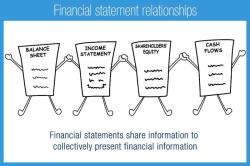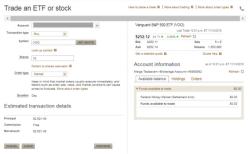Should you invest in municipal bonds?
Whether or not you should invest in municipal bonds depends on your financial goals, risk tolerance, and investment strategy. Municipal bonds can be a suitable investment for some individuals, but like any investment, they come with both considerations and benefits. Here are some factors to consider when deciding if investing in municipal bonds is right for you:
Benefits of Investing in Municipal Bonds:
Tax Benefits: One of the primary attractions of municipal bonds is their potential for tax advantages. Interest income from municipal bonds is typically exempt from federal income tax, and if you invest in bonds issued by your home state, they are often exempt from state and local income taxes as well. This can result in tax-free income for investors in higher tax brackets.
Stability and Safety: Municipal bonds are generally considered lower-risk investments compared to stocks and some other types of bonds. Municipal issuers have a history of relatively low default rates, making these bonds a relatively stable investment choice.
Income Stream: Municipal bonds provide regular interest payments, making them a source of income for investors, especially retirees seeking steady cash flow.
Diversity: Investing in municipal bonds can help diversify your investment portfolio, reducing overall risk. They often have a low correlation with other asset classes like stocks, so they can provide stability during market volatility.
Considerations When Investing in Municipal Bonds:
Interest Rate Risk: Municipal bond prices are sensitive to changes in interest rates. When interest rates rise, bond prices tend to fall, which can result in capital losses if you need to sell your bonds before maturity.
Credit Risk: While defaults on municipal bonds are relatively rare, they can happen. It's crucial to assess the creditworthiness of the issuer, particularly if you are investing in bonds issued by less financially stable municipalities.
Liquidity: Municipal bonds may be less liquid than other investments, which can make it challenging to buy or sell them at specific times. Some bonds may have limited secondary market activity.
Yield: Municipal bonds often offer lower yields compared to other fixed-income investments like corporate bonds or Treasury securities. This means the income generated may be lower, which can be a drawback for income-focused investors.
Investment Horizon: Consider your investment horizon. Municipal bonds are typically seen as long-term investments. If you need to access your money in the short term, there may be better options.
Investment Size: The tax benefits of municipal bonds are more significant for high-income individuals. If you are in a lower tax bracket, the advantages may be less pronounced.
Fees: Be aware of any fees associated with purchasing municipal bonds, as they can affect your overall return.
Ultimately, whether you should invest in municipal bonds depends on your financial objectives and risk tolerance. It's often advisable to consult with a financial advisor or tax professional to evaluate whether municipal bonds align with your overall investment strategy and financial goals.
Investing in Municipal Bonds: A Financial Decision
Municipal bonds are debt securities issued by state and local governments to finance public projects, such as schools, highways, and hospitals. Municipal bonds are generally considered to be low-risk investments because they are backed by the full faith and credit of the issuing government.
There are several factors to consider when deciding whether to invest in municipal bonds. These factors include:
- Yield: The yield on a municipal bond is the interest rate that the bond will pay over its lifetime. Yields on municipal bonds are typically lower than yields on other types of investments, such as corporate bonds and stocks.
- Credit risk: The credit risk of a municipal bond is the risk that the issuer will default on the bond. Municipal bonds are generally considered to be low-risk investments, but there is always some risk of default.
- Tax advantages: Municipal bonds are exempt from federal income tax, which can make them an attractive investment for taxpayers in high tax brackets.
- Liquidity: Municipal bonds are traded on secondary markets, which means that investors can sell their bonds before they mature. However, the liquidity of the municipal bond market can vary depending on the type of bond and the overall market conditions.
Municipal Bond Investment: Weighing the Pros and Cons
Pros of investing in municipal bonds:
- Low risk: Municipal bonds are generally considered to be low-risk investments because they are backed by the full faith and credit of the issuing government.
- Tax advantages: Municipal bonds are exempt from federal income tax, which can make them an attractive investment for taxpayers in high tax brackets.
- Diversification: Municipal bonds can help to diversify an investment portfolio by providing exposure to a different asset class.
- Liquidity: Municipal bonds are traded on secondary markets, which means that investors can sell their bonds before they mature.
Cons of investing in municipal bonds:
- Lower yields: Yields on municipal bonds are typically lower than yields on other types of investments, such as corporate bonds and stocks.
- Credit risk: There is always some risk of default on any type of bond, including municipal bonds.
- Complexity: The municipal bond market can be complex and difficult to navigate for individual investors.
The World of Municipal Bonds: Is It Right for You?
Whether or not investing in municipal bonds is right for you will depend on your individual investment goals and risk tolerance. If you are looking for a low-risk investment with tax advantages, municipal bonds may be a good option for you. However, it is important to understand the risks involved before investing in any type of bond.
Here are some things to consider when deciding whether or not to invest in municipal bonds:
- Your investment goals: What are you hoping to achieve with your investments? If you are saving for retirement, municipal bonds may be a good option for you because they offer stability and tax advantages.
- Your risk tolerance: How much risk are you comfortable with? Municipal bonds are generally considered to be low-risk investments, but there is always some risk of default.
- Your time horizon: How long do you plan to invest for? Municipal bonds can be a good option for investors with both short-term and long-term investment horizons.
If you are considering investing in municipal bonds, it is important to do your research and consult with a financial advisor to determine whether or not they are the right investment for you.













